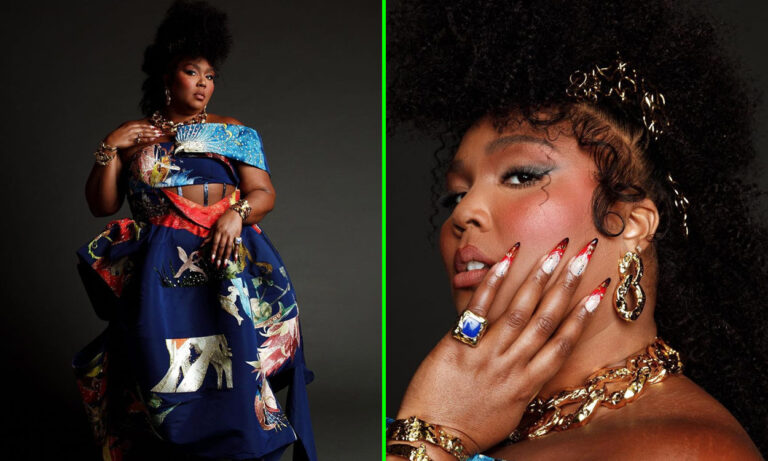Lizzo invites 17 female activists on stage during inspiring People’s Choice Awards speech
The annual People’s Choice Awards was held on Wednesday 7 December at the Barker Hangar in Santa Monica, California and, as is tradition with such celebrity gatherings, by the following morning, Google News was brimming with the media’s in-depth analysis and an hour-by-hour breakdown of the evening’s proceedings. While some publications may have decided to focus their attention on the see-through nature of Olivia Wilde’s dress, we believe it’s more important to emphasise the sheer impact of Lizzo’s acceptance speech—during which she amplified the voices of 17 incredible global activists.
Accepting the award for People’s Champion, Lizzo—staying true to the recognition itself—welcomed 17 activists on stage, all women, to share the accolade. The singer and unofficial queen of the people began her speech and stated: “To be an icon is not about how long you’ve had your platform. Being an icon is what you do with that platform. And ever since the beginning of my career, I’ve used my platform to amplify marginalised voices.”
@lizzo Replying to @wiscojeepher hiiii… I made a version that highlights the activists & their socials so you can find them all and support! ❤️
♬ original sound - lizzo
All 17 individuals invited on stage have been champions of activism within their own respective fields and were all individually recognised by Lizzo. The Grammy Award-winning artist began by introducing 15-year-old Amariyanna Copeny—also known as Little Miss Flint—who spent the past eight years campaigning to ensure the population of Flint, Michigan have access to clean drinking water.
Moving down the line, the ‘About Damn Time’ singer also shined light upon Yasmine Aker, an American-Iranian grassroots activist who has been utilising her platform to spread awareness about the women-led protests in Iran. Felicia “Fe” Montes is a Xicana Indigenous artist who has created a safe space for Indigenous women of colour to express themselves freely.
Another notable mention came for Jayla Rose Sullivan, a professional dancer who’s been a crucial presence within the non-binary and trans community and recently competed in the singer, rapper, and flute enthusiast’s TV show Lizzo’s Watch Out for the Big Grrrls. In the series, which started airing in March 2022, a troupe of individuals are put to the test, battling it out to try and secure a spot as one of Lizzo’s backup dancers.
Among the other individuals were champions of HIV awareness and trans rights, the protection of muslim women, abortion rights, and gun regulation. Tamika Palmer—the mother of Breonna Taylor who was fatally shot in 2020 by a police officer—was also present as a representative for both her daughter and the global fight against police violence.
Lizzo concluded her acceptance speech by exclaiming: “Give them their flowers, power will always be to the people!”
A vast number of supporters took to TikTok to share their appreciation for the artist’s public recognition of these activists who are often overlooked by mainstream media. One user aptly wrote: “When we say ‘use your platform’ to celebrities, this is what we mean. You are making waves and all of these beautiful people are doing so much for this country and their local communities. Queens, all of them.”






